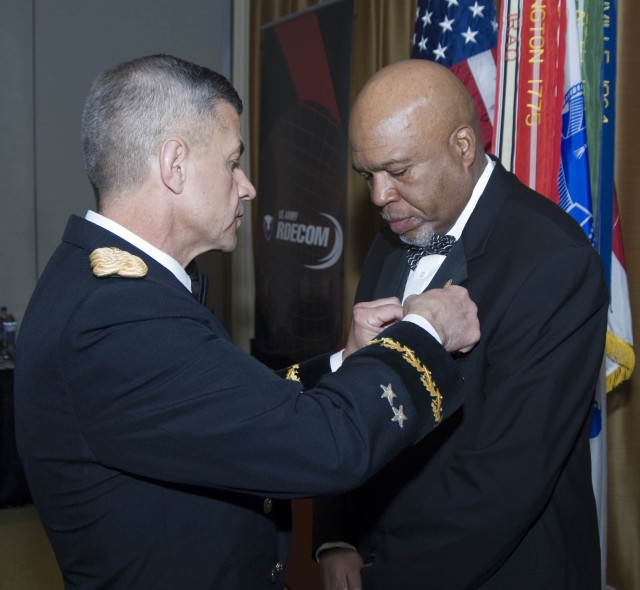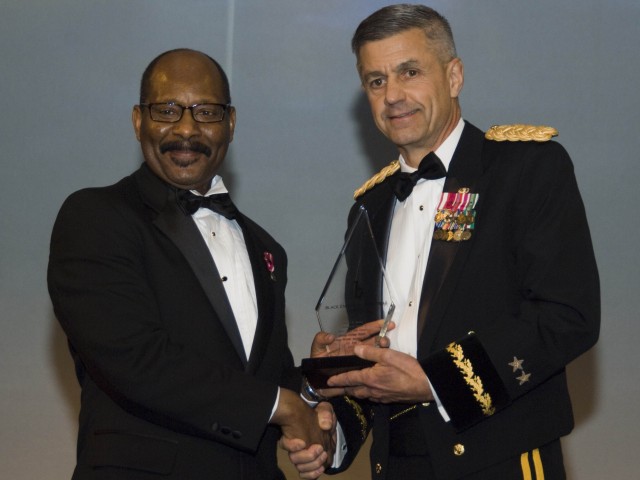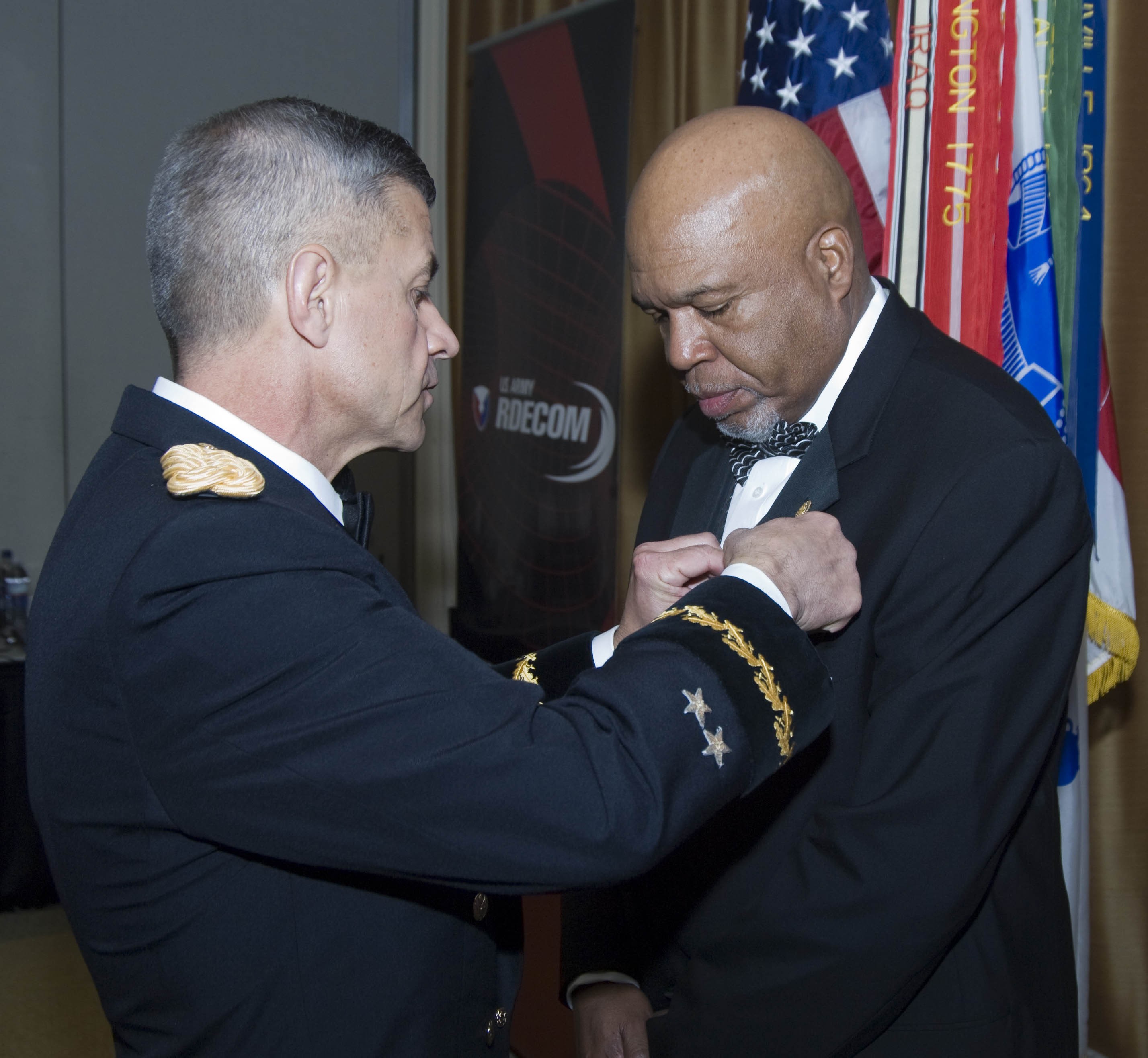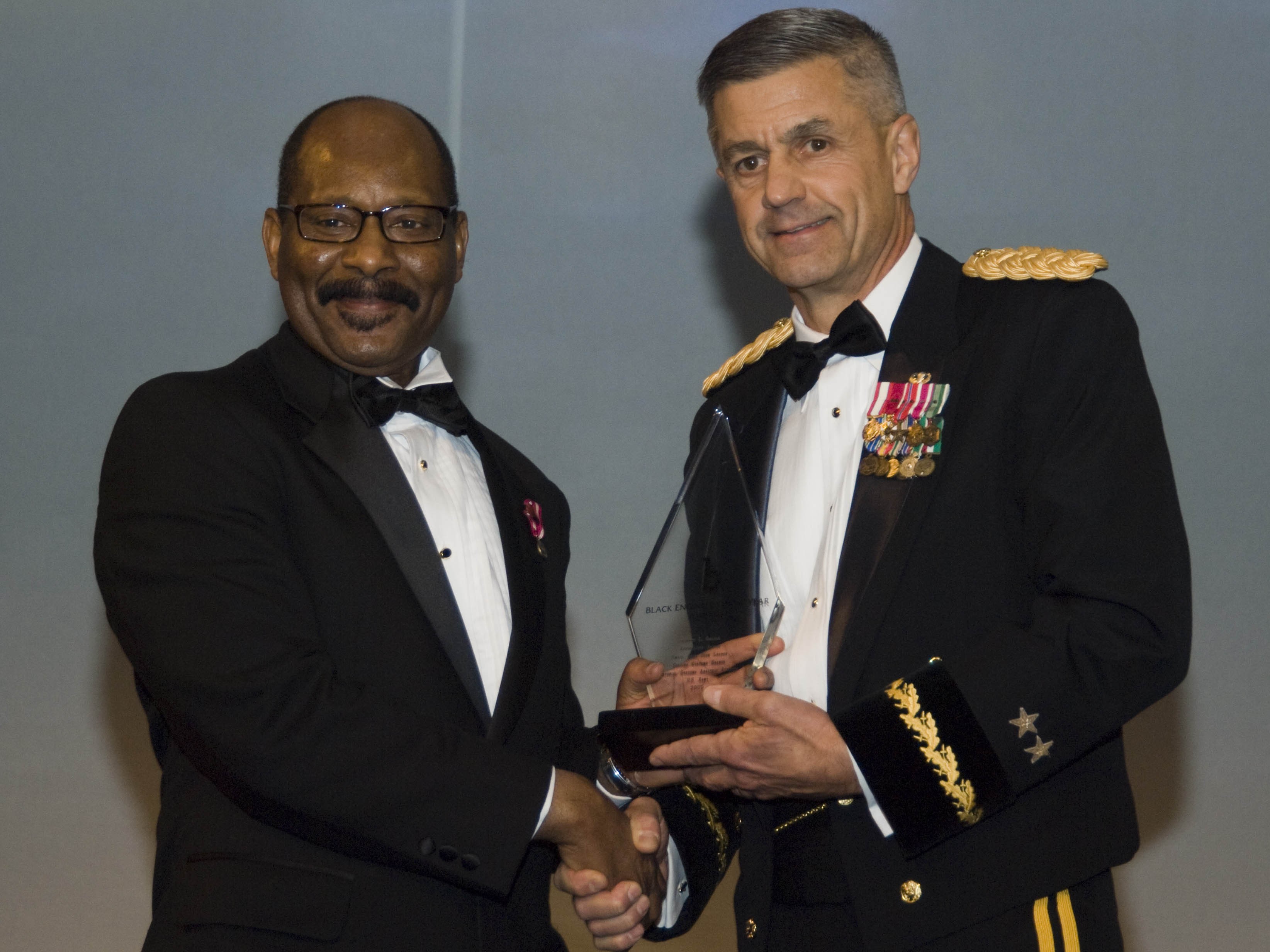Aberdeen Proving Ground, Md. - An Army Materiel Systems Analysis Activity employee here was one of four Research, Development and Engineering Command employees honored for their work during the Black Engineer of the Year Award Science, Technology, Engineering and Mathematics Global Competitiveness Conference held in Baltimore Feb. 18-22.
Operations Research Analyst Johnny L. Graham, 55, was singled out for his work in affirmative action in a ceremony Feb. 21. Also receiving an award that day was Army Research Laboratory Outreach Program Manager Vallen Emery, 60, who received the Deans Award - Government for his support of Historically Black Colleges and Universities. Christopher Scott of the Tank and Automotive Research, Development and Engineering Center, and Adam Webb of the Communications-Electronics Research, Development and Engineering Center, were recognized as Modern Day Technology Leaders at awards luncheon Feb. 20.
Graham was cited for his affirmative action work, which ranged from mentoring minority youths in Edgewood to being a long-time member of the RDECOM commander's advisory group on issues concerning minorities and women.
"I'm really honored to win this award, but most of the things I've done related to affirmative action are things I did willingly because I feel that it's something that I owed," Graham said. Emery also cited a need to give back to his community, though his drive came to him as a challenge.
"My major professor when I was in my Ph.D. program required each student to commit to helping three more minority students reach their PhDs. He said each of us had a responsibility to build a pipeline. So he helped me, I reached back and helped someone else," he said.
Both said they get a lot of personal satisfaction from what they do, but Graham said what they do serves a bigger purpose.
"I think it benefits the Army, the Department of Defense and the country to utilize the capabilities of everyone in this country. I think that the best way to do that is to make sure that we don't neglect any segment of the population, that we're enlisting the help of everyone in this country," Graham said.
The 29-year AMSAA veteran does his part by heading a program with other engineers at AMSAA and several other APG activities to mentor African American males from Edgewood High School. He has performed that role for eight years, but that is just the start of his contributions.
He also has a successful run as the AMSAA coordinator for the Inroads Program, which named him its business coordinator of the year in 2000.
"Inroads trains interns how to work in a business environment. They get the opportunity to work, and you get a chance to help develop those young people," Graham explained. "I was the one who got them assignments, was the (point of contact) with the Inroads office, and basically took care of those kids while they were here," he said.
In the workplace Graham is also AMSAA's representative on APG minority college relations program and the RDECOM commander's advisory group, which is made up of representatives from each of RDECOM's subordinate elements.
"We meet with the commanding general frequently during the year to address concerns and give the commander advice on certain issues within the command. And as a subset of that, each organization has an advisory group, and I am the AMSAA director's coordinator for that."
Graham accomplishes all this in addition to being the leader of a team with global responsibilities to the safety of the nation's Soldiers.
"My regular job as team leader of AMSAA's small arms team keeps me very busy," he said. "Our primary focus is on Soldiers, their equipment and their survivability. We look at issues like how survivable the Soldier is wearing his armored vest'
"We're also the collectors of all the small arms data. Whenever there's a major government study being conducted by other government agencies they come to my team to get the data for those studies," Graham said.
Emery's efforts are part of his job as the ARL outreach program manager, a position he took specifically to reach out and help others. His duties include more than his work with the Historically Black Colleges and Universities he was recognized for supporting, but his involvement with that group of institutions is extensive, he said.
"We have significant educational partnership agreements with them and several research centers of excellence with them," Emery said. "We have students from Historically Black Colleges and Universities coming for internships every summer. It's significant."
That involvement prompted the Army Materiel Command to nominate Emery for the award, but that nod was just one instance of the official support that helped him earn the award, he said.
"This is a significant highlight of my professional career, because you're being recognized for your commitment to science, math and engineering education," he said. "I feel blessed to be honored, but the organization did it. It really speaks to ARL's investment in this community. They gave me the opportunity and the support to do it, so I feel honored to work with these people."
Workplace support to do his job and achieve a personal commitment, which then led to national recognition, put Emery in a enviable position, he said.
"The one thing I really want to emphasize is that I feel that I have the best job in the Army because I'm doing something I love. I'm interacting with people inside the Army and outside the Army trying to facilitate research collaboration between Army labs and minority academic institutions."
The support of his organization and the tie to Historically Black Colleges and Universities were also important to Graham.
"I also benefited from a lot of good mentoring here at AMSAA and benefitted from being able to work with really top-notch folks. And I think being involved with some of the things I've done with affirmative action is just my way of paying back," Graham said.
"I'm just really honored not only because it comes from my organization nominating me, but because it comes from the deans of historically black colleges and universities and that recognition means a lot to me."
We frequently meet with employees to discuss issues and meet with the director to talk to him about those issues and give him feedback from the RDECOM commander's advisory group," he said.




Social Sharing